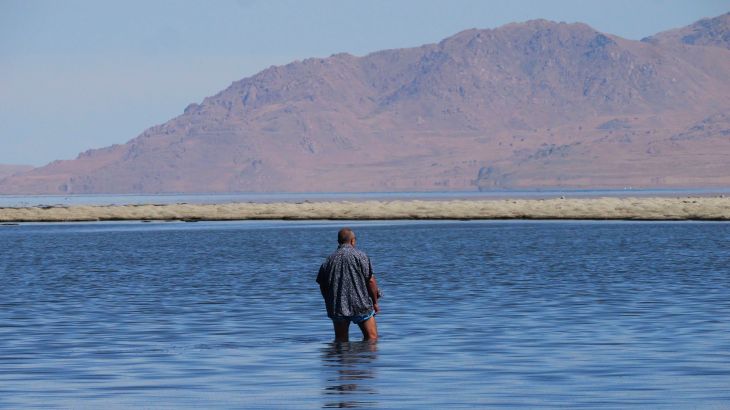
What will it take to save the world’s lakes?
On Wednesday, April 5 at 19:30 GMT:
The clock is ticking to prevent some of the world’s largest saltwater lakes from disappearing and avert consequential environmental and public health disasters.
In an urgent call to action, scientists and conservationists at Brigham Young University warn that Great Salt Lake in Utah could vanish within five years without sufficient emergency measures being taken. Overuse of the river waters that feed the lake by local homes, farms, and industries is the main cause, with climate change fuelling evaporation of the dwindling lake water.
Great Salt Lake is just one of several saltwater lakes around the world that are shrinking. The level of the Dead Sea in the Jordan Rift Valley is dropping by about four feet every year, exposing salt deposits and causing sinkholes along the receding shoreline. Lake Urmia in Iran could dry out completely, with its rapid recession since the mid-1990s spurred by the diversion of river waters, reduced rainfall, and rising temperatures due to climate change.
The world’s largest lake is also at risk. Researchers say the Caspian Sea could lose 25% percent of its former size by 2100 – exposing dry land equivalent to the area of Portugal. They urge concerted global action to tackle climate change that is spurring water evaporation.
The rapid shrinking of salt lakes has major implications for communities and wildlife. As the Great Salt Lake erodes, the ecosystem for shrimp and flies will collapse – imperilling a precious food source for millions of migratory and nesting birds. Arsenic, mercury, and lead within the dry lake bed is already being whipped up by winds and carried towards residents of Salt Lake City, Utah’s most populous region.
In this episode of The Stream we’ll examine emergencies at some of the world’s major lakes and ask what urgent action is needed to save them.
In this episode of The Stream, we are joined by:
Ali Mirchi, @MirchiAli1
Assistant Professor, Department of Biosystems and Agricultural Engineering, Oklahoma State University
experts.okstate.edu/amirchi
Carly Biedul
Coordinator, Great Salt Lake Institute at Westminster College
westminstercollege.edu
Yael Kiro
Assistant Professor, Weizmann Institute of Science
weizmann.ac.il/EPS/Kiro/home